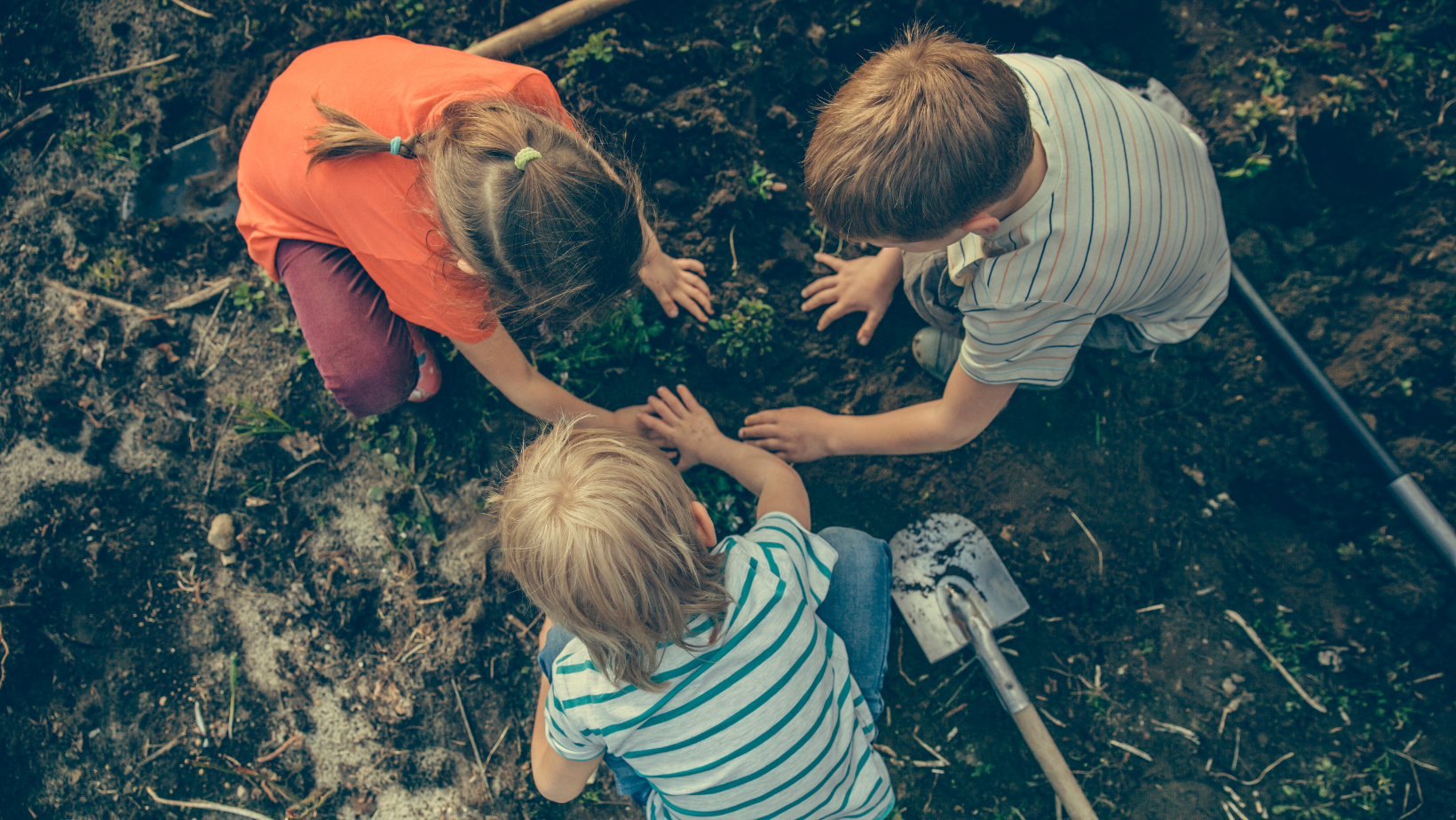Posted by Esther Roberts on 17th Jun 2021
Why gardening should be taught in school

As well as being good outdoor fun, school gardening has been proven to have many benefits to health and wellbeing. In 2008, The RHS ‘Campaign for School Gardening’ launched, and since then over 12,000 educational institutes have signed up. The RHS campaign aims to show how gardening can enrich the curriculum and encourage schools to use it as a teaching tool
Gardening is often an overlooked subject for schools. However, many studies have proved how it can help develop several life skills and improve environmental education. Below are just some of the ways in which gardening benefits school children, from new skills to improved academic performance.
Social & Emotional Benefits
According to a 2017 study, access to green space has a link to improved mental well-being and cognitive development of children. Growing plants and vegetables can be very satisfying for children – giving them a positive boost to their self-esteem. Whilst the garden can often be a place for fun, it can also provide a place for children to have some calm and peaceful time. Another study based around the effect of school environments green areas found that pupils should "engage in activities and learning experiences within natural environments as much as possible, in order to boost their psychological and physiological well-being."
Encourages Exercise and Healthy Eating
A study by Harvard found that the number of calories burnt from 30 minutes of gardening is comparable to playing badminton, volleyball or practising yoga. By bending over to pull out weeds, digging holes for planting, and simply moving around, children tend to become more active, reducing the risk of child obesity. Therefore, gardening is an essential activity for encouraging children to get outside and stay healthy.
It can also sometimes be a struggle to get children to eat healthy foods and enjoy them. Harvesting fruit and vegetables can be both educational and rewarding. Growing vegetables not only teaches kids hard work, but they get a sense of achievement knowing they are eating food they have grown themselves.
Develops Responsibility
Gardening is a great way to encourage your little ones to accept responsibility for a certain task or project. Adopting a healthy attitude to responsibility and accountability will also help your children take pride in their accomplishments.
Improves Social Skills
Gardening can be a very sociable activity. Children can learn to work together and will enjoy discussing different types of flowers, and the anticipation of waiting for whose flower will shoot through the soil first will encourage children to interact and engage.
Also, for special needs children there are many benefits to gardening and working with plants. Many children with special needs may have few opportunities for social interactions, but gardening with a group of students offers a safe place to engage with others and make friends.

